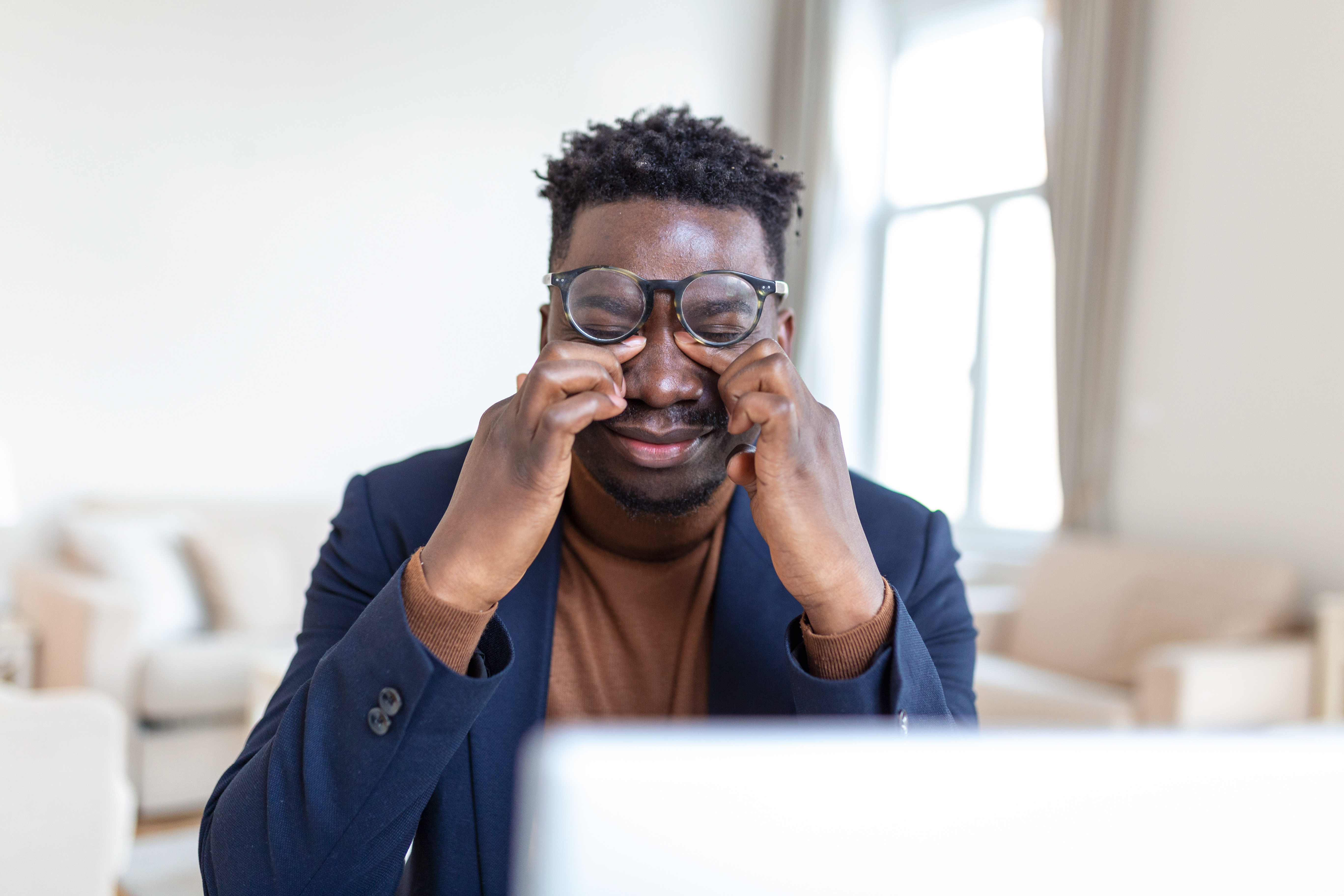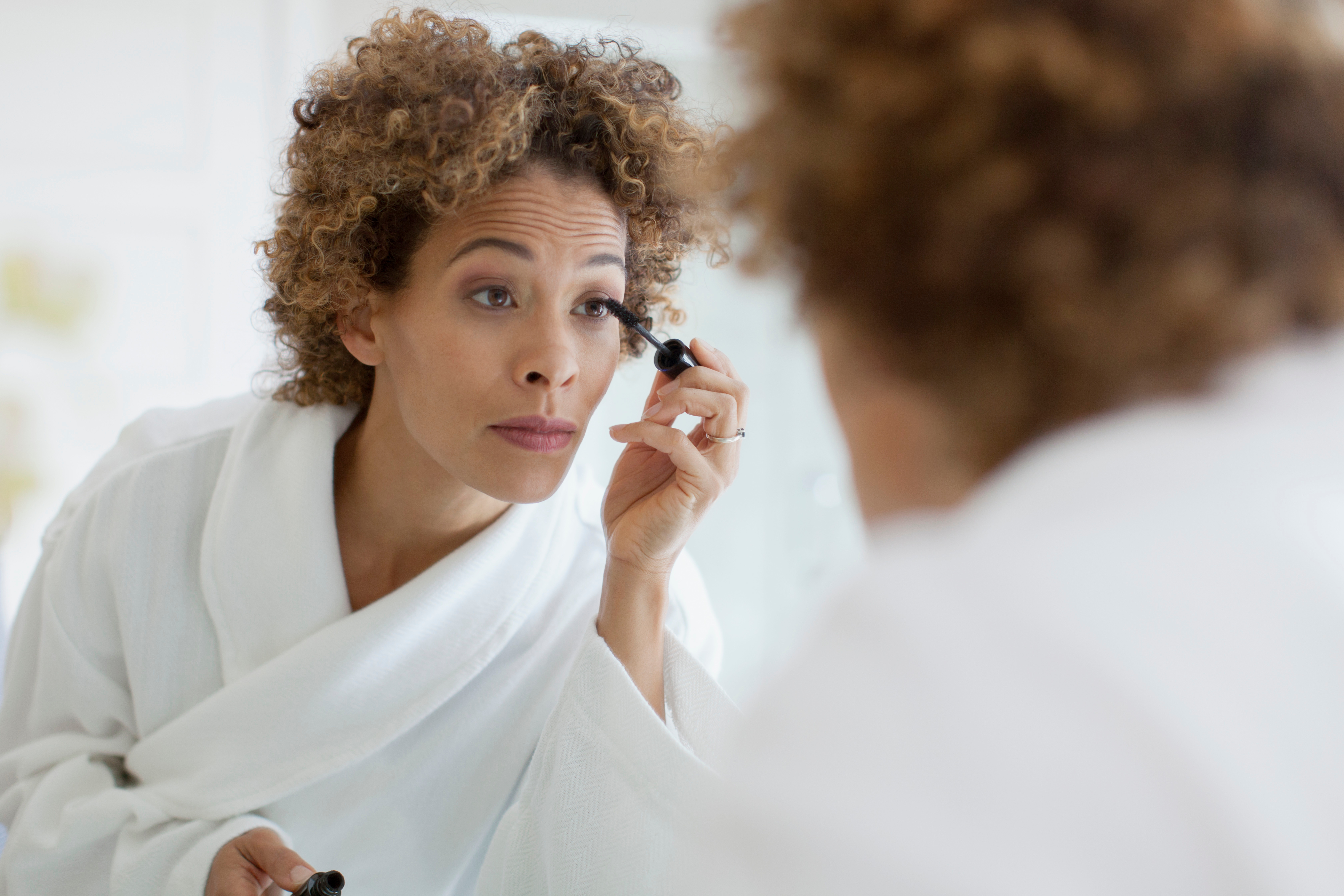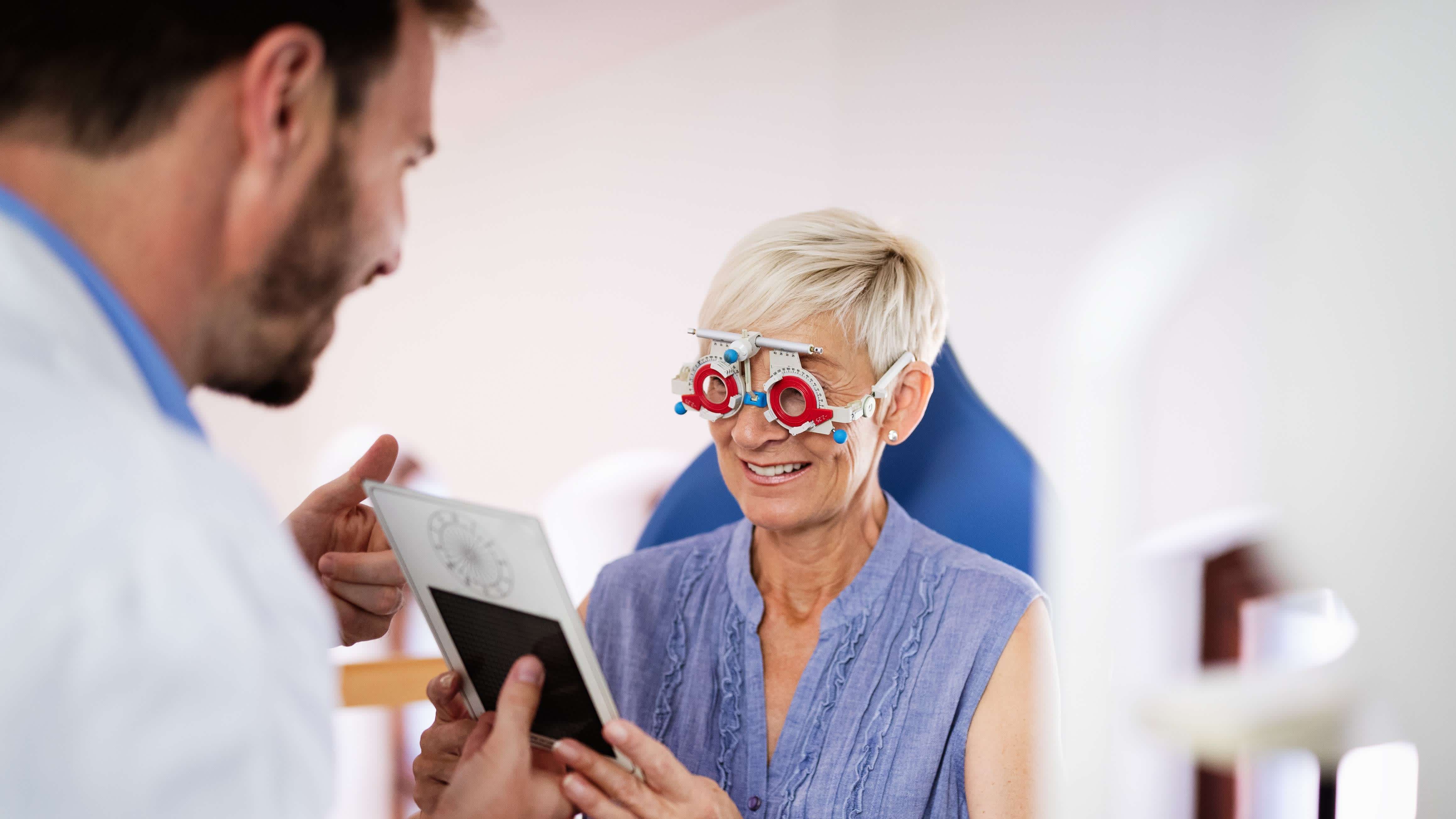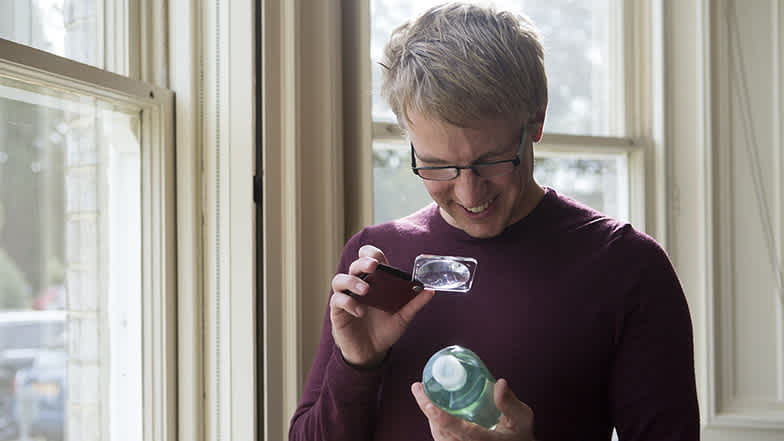1. Wear the right eye protection
It is important to identify risks to eye health and choose the appropriate protective eyewear for the activity. Even typical everyday situations, like holidays or going to work, can pose a risk. Thinking about protecting your eyes in each case can reduce the risks.
Eye protection at work
Some workplaces pose a risk to eye health, particularly if they generate dust, wood shavings, metal filings or other particles that can get stuck in your eyes. A foreign body in the eye can scratch your cornea or cause serious eye injury and vision loss. If your work environment poses a risk to eye health, your employer should provide protective eyewear, like goggles, glasses, or visors.
Sunbed eye protection
Sunbeds (tanning beds) emit harmful UV radiation that can damage the cornea and lens, potentially causing irritation, conjunctivitis and more serious complications like cataracts (Source: HSE). The best way to protect your eyes is to avoid sunbeds altogether. If you do use sunbeds, always wear the protective eyewear provided.
Sports eyewear
A blow to the eye can cause eye injury and even loss of sight. Ball and racket sports, combat and contact sports pose a risk of injury, like a black eye, fractured eye socket or detached retina. You should wear protective polycarbonate eyewear where possible.
Wear sunglasses
The sun emits ultraviolet light, made up of UVA and UVB rays. We know that UV exposure can cause sunburn, which increases the risk of developing skin cancer. However, UV light can also damage your eyes. Just as you wear UV protection for your skin, you should also wear sunglasses to protect your eyes from the sun.
2. Protect your eyes from computer screens
Computer eye strain is a feature of modern life. Prolonged screen use can reduce blinking, causing irritated, dry eyes and eye strain.
Screens also emit blue light, which can damage the sensitive cells in the retina. Some researchers have suggested that high doses of blue light could increase your risk of developing age-related macular degeneration (AMD) (Source: RNIB). However, the blue light from electronic devices should fall below this dangerous level.
How to reduce computer eye strain
Anti-blue-light glasses
Blue light can tire the eyes and lead to eye strain (Source: Prevent Blindness). Special glasses have a slight yellow tint, which reduces the amount of blue light that enters your eyes. Some computer programmes reduce the amount of blue light emitted from the screen after it gets dark, which helps to reduce eyestrain and encourages a good night’s sleep.
Good lighting
When you’re working on a screen in a dim room, your eyes can struggle to adapt to the brightness of the display against the darkness of your surroundings. Make sure you have adequate lighting to avoid computer eye strain.
Take regular screen breaks
Resting your eyes gives them a break from the brightness of your screen and allows them to relax and refocus on other objects. Screens can cause dry eyes, so time away from your computer or laptop also encourages your eyes to blink more, replenishing the moisture on the eye’s surface. Lubricating eye drops can also help prevent dry eyes.

3. Have regular eye tests
Regular eye exams are vital for eye health and maintaining good vision. Your optometrist or ophthalmologist can carry out a comprehensive eye exam that detects any changes and signs of eye problems, like glaucoma, cataracts or macular degeneration.
4. Wear your prescription glasses
It is a myth that wearing glasses can make your eyes weaker. Wearing prescription glasses or reading glasses will generally make everything clearer, especially as we get older or if the light is poor.
5. Take care with eye makeup
Eye makeup is a potential irritant for the eyes. Some products are unsafe for use around the delicate eye area, so always check the label. If you have sensitive skin or wear contact lenses, use specially developed products that are less likely to irritate. Apply any eye makeup carefully to avoid getting the product in your eyes.

6. Try to stop smoking
The health risks of smoking are well known, but as well as affecting overall health, smoking can also damage the eyes. Smokers are more likely to develop some eye conditions, including cataracts, macular degeneration, optic neuritis and diabetic retinopathy (Source: NHS Royal Free London). After you quit smoking, your risk of developing eye conditions reduces over time, so the sooner you stop, the better.
7. Eat a healthy diet
The essential nutrients and antioxidants found in a healthy, balanced diet can help prevent eye disease. Colourful fruit and vegetables that contain vitamins A, C and E are particularly good for the eyes. Red meat, oysters, and poultry provide zinc, which helps the retina stay healthy. Lutein and zeaxanthin, found in green vegetables, including kale, spinach and green peas, play an essential role in eye development. Omega-3 fatty acids found in nuts and seeds also support eye health.
8. Stay active
Exercise and an active lifestyle can help maintain a healthy weight and reduce the risk of developing some medical conditions. Being overweight is closely linked to type 2 diabetes (Source: Public Health England) and high blood pressure. High blood sugars from diabetes damage the tiny blood vessels in the eyes, leading to diabetic retinopathy. High blood pressure can also damage these delicate blood vessels.
9. Cut down on alcohol intake
As well as impacting overall health, alcohol can also affect the eyes. Heavy drinkers may be at greater risk of developing serious eye problems, like cataracts and age-related macular degeneration (Source: Survey of Ophthalmology). Cut down on alcohol to reduce the risk of damaging your eyes.
10. Be aware of genetic eye conditions
You might be at higher risk of developing some eye conditions if they run in your family tree. Be aware of any hereditary conditions, like colour blindness, glaucoma, corneal dystrophies or retinitis pigmentosa, that might need specialist ophthalmology care. Pay attention to your eyesight to catch any vision problems early.
Frequently asked questions
Which eyewear offers the best protection?
Your choice of protective eyewear depends upon the activity you’re undertaking and the level of risk involved. It is always best to use industry-recommended products that comply with legal safety regulations. If wearing safety goggles, try to choose those made of shatterproof polycarbonate rather than plastic.
Do supplements help protect the eyes?
A healthy, varied diet should provide the vitamins and nutrients you need for eye health. However, supplements are available if you struggle to eat the required foods, like leafy greens, nuts and seeds. Seek advice from your optician or doctor before taking supplements for eye health.
Conclusion
Suitable eye protection is vital in situations where your eye health may be at risk. Even everyday situations, like holidays, work and sports, can lead to eye damage. Maintain eye health with regular check-ups and a good eye care routine, and if you have any concerns about your eye health or eyesight, see your optometrist or eye doctor for advice.

Medically reviewed by: The Royal College of Ophthalmologists on 26/09/2022
Edited by: Nick Astbury FRCS FRCOphth FRCP Clinical Associate Professor LSHTM
The Royal College of Ophthalmologists champions excellence in the practice of ophthalmology and is the only professional membership body for medically qualified ophthalmologists. The RCOphth is unable to offer direct advice to patients. If you’re concerned about the health of your eyes, you should seek medical advice from your GP, optometrist or ophthalmologist.



